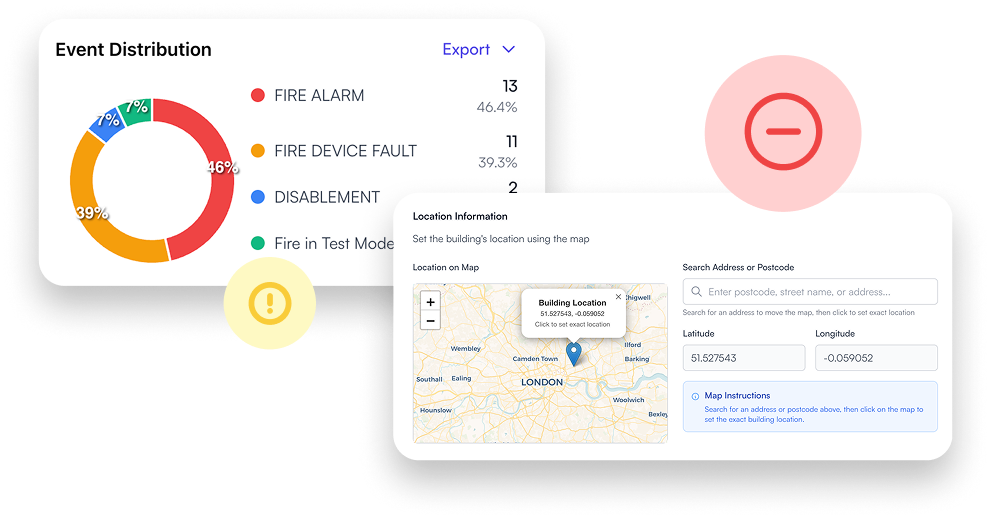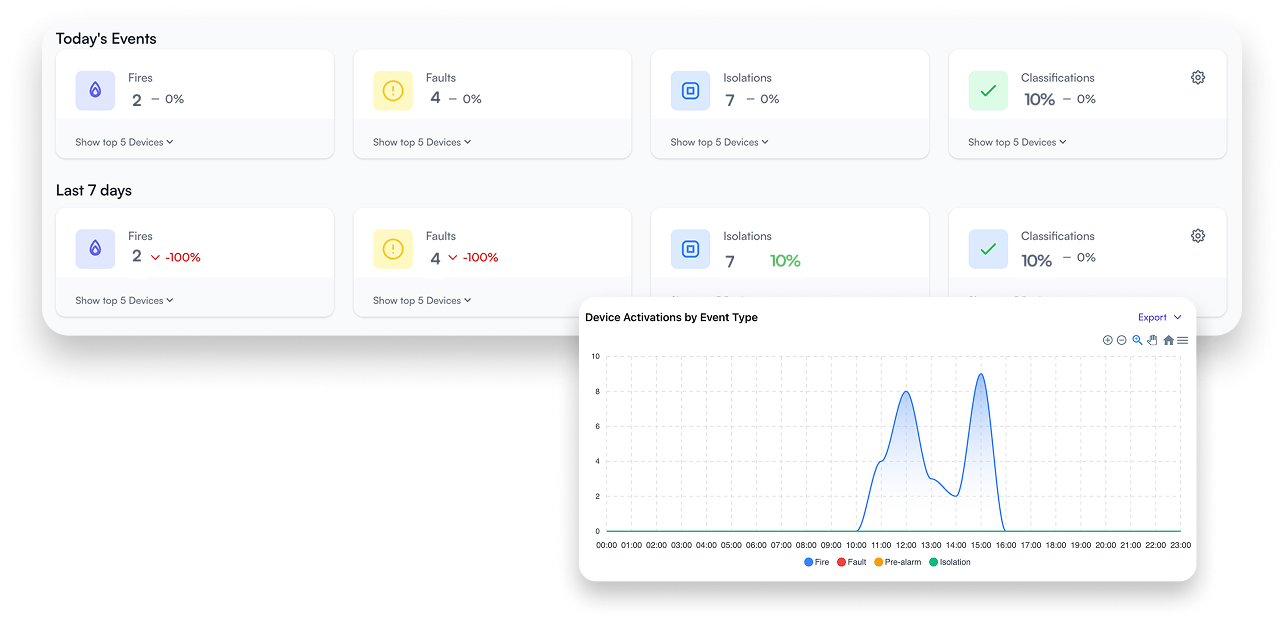What is the biggest fire risk in student accommodation?
The biggest fire risk in student accommodation is cooking accidents. This is closely followed by tampering with fire safety equipment, misuse of electronics, and misuse of fire doors.
How can I reduce false fire alarms in student housing?
You can reduce false fire alarms in student housing by implementing monitoring software that will allow you to catch any fire safety asset faults or tampering early. This in turn allows you to replace any fire safety assets that have become faulty or have been tampered with before they can pose a serious fire risk.
What are the fire safety responsibilities of a student accommodation landlord or manager?
The legal fire safety responsibilities of a student housing landlord or manager are to:
Conduct regular Fire Risk Assessments and implement changes.
Periodically test and maintain all fire safety equipment.
Perform regular checks on fire doors in communal areas (at least every three months)
Ensure that all furniture and furnishings meet fire safety standards
Conduct building fire safety inspections (both by staff and FRS risk-based inspections)
Does Drax Technology's system work with my existing fire alarm panels?
Yes, our intelligent platform is compatible with over 50 fire alarm panel manufacturers.
How does intelligent asset management help with student accommodation compliance?
Intelligent asset management helps with student accommodation compliance by centralising the status of all fire safety assets in one easy to use dashboard and flagging any cases of non-compliance that occur. This allows you to take a proactive approach to fire safety across all of your student accommodation sites.




















































